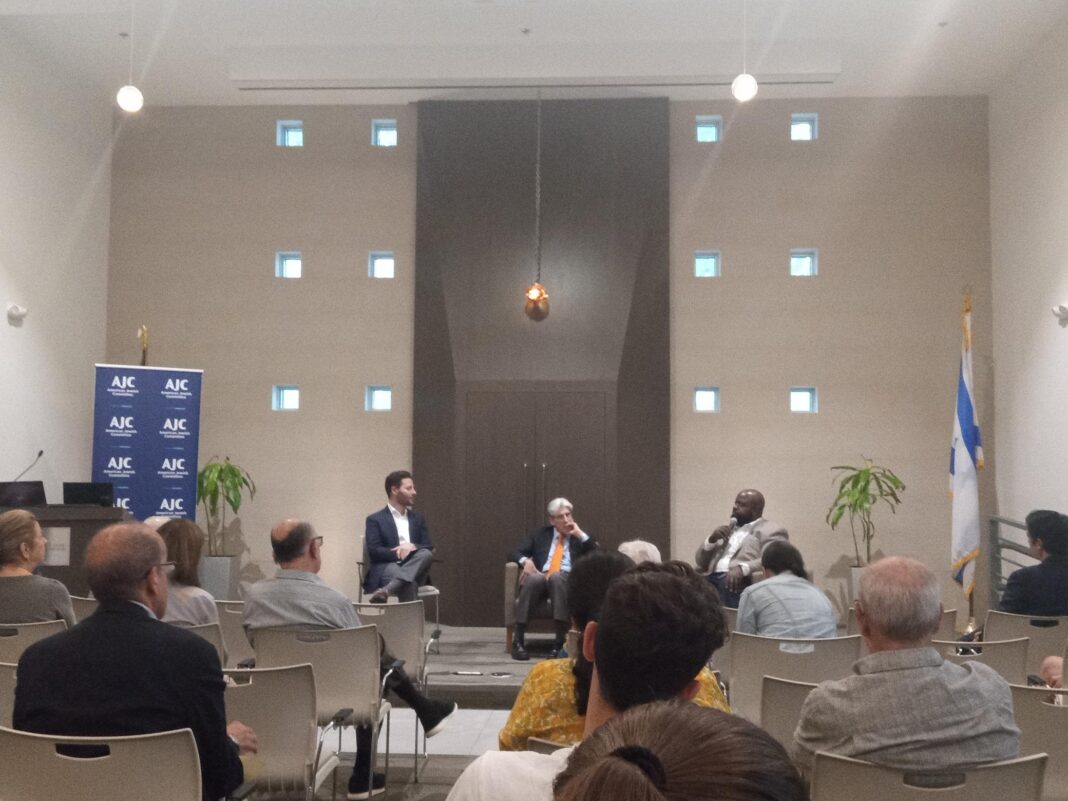
On the 22nd anniversary of Sept. 11, 2001, University President Julio Frenk and Dean of Students Ryan Holmes sat down at UM Hillel to discuss their trip to Israel with the American Jewish Committee (AJC), generating different opinions among some students on the day of remembrance.
Project Interchange, the AJC program in which the University’s leaders participated, hosts these educational trips each year for global diplomats, policy makers and university ambassadors to deepen their understanding of Israel “beyond the headlines.”
However, some students expressed confusion about the date and location selected for the event given the topic’s proximity to the Israeli-Palestinian conflict.
“I do feel it was weird to hold the discussion on 9/11 – it puts one side at an advantage,” said one student of Palestinian descent, who chose to remain anonymous due to the subject’s controversial nature.
“I think it’s a great effort on the part of the University to start trying to open the conversation. I genuinely wish I could speak freely about where I’m from, but the reality is that there are various individuals that target people for speaking up. Not only is it mentally draining, but opens me up to very hurtful and hateful speak.”
Briana Schwarz, the executive director for UM Hillel, opened the evening’s conversation by drawing attention to the selected day of the event, recalling her own memory of the tragedy that claimed thousands of American lives.
“As I watched the world change before my eyes that September morning, I remember a strong desire to be surrounded by my Jewish community,” said Schwarz.
“I want to emphasize the strength of our own Jewish community at the U, as we are in a unique position to be proactive about antisemitic education rather than reactive to antisemitic attacks.”
During the conversation, both President Frenk and Dean Holmes emphasized their mutual goal to bring back valuable insights for opening constructive conversations among students of diverse backgrounds on campus, especially those of Jewish and Palestinian heritage.
President Frenk, who has visited Israel in the past to connect with his own Jewish culture, emphasized his effort to return to the country after the pandemic to view its current educational innovations. However, he also visited the Middle Eastern state to evaluate peace efforts in the region.
“The most impactful lesson of this trip is that it allows you to be removed from this idea of one camp being against another,” said Frenk. “We had many opportunities on the ground to see Palestinians and Jewish citizens of the state working together to conduct their day-to-day life. You see people wanting to be united by the common desire for peace and for creating a better future for their families.”
Some students who attended the event found the conversation to be a refreshing take on the current state of Israel.
“I actually got the opportunity to travel to Israel last year with Hillel,” said Doménica Núñez del Arco Abad, a third-year Ecuadorian student. “I found it incredibly interesting to hear from a leader like President Frenk talking about an experience I was also immersed in thanks to the University. It’s more than just a week abroad – it’s a mindset that you have to keep engaging with even beyond your time there.”
However, other students argue that the picture painted at UM Hillel is not entirely representative of Palestinian and Arab experiences in the country.
“It is very possible that these individuals share a common desire for peace, but they also share a common desire to survive,” the student of Palestinian descent said. “There are various organizations and individuals that target people for speaking up. Palestinians living in Israel do have a certain privilege, but they also feel that lack of vocal freedom when they do face discrimination.”
Dean Holmes, noting his background in history, discussed his desire to visit the country to draw his own conclusions independent of the images of geopolitical conflict in the mainstream media.
“My history journey really started with me wanting to do a study of oppression,” Holmes said. “I also went in with my lens of conflict resolution, and I learned that the more you speak and the more you enter into a space with a heart to hear rather than a heart to deliver, more can be done.”
According to Frenk and Holmes, their visit consisted of stops in areas such as Tel Aviv and Ramallah, dividing their time between watching presentations on educational advancements to speaking with Israeli and Palestinian business owners.
Though both President Frenk and Dean Holmes acknowledged the complexity of the night’s discussion, they each made their commitment to understanding students and fostering safe environments within UM clear as the evening came to a close.
“This is an educational space, but also a space of healing and exchange that we hope our students emerge from better,” said Holmes. “I truly believe this trip helped me to understand how to better assist them in the right ways and keep the conversation going.”






